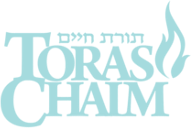The reason for the annual pre-Pesach reading of Parshas Parah, the Torah instruction regarding the Parah Adumah (Red Heifer), is almost as enigmatic as its subject. While in a general sense we read it to establish purity in anticipation of the holiday season, this falls short of making this reading the Torah commandment that several sources indicate it is[1].
A theory advanced by a number of later authorities[2] suggests that the reading accomplishes a soft fulfillment of the Torah commandment[3] to recall how we angered G-d during the desert period, specifically through the creation and worship of the Eigel HaZahav (Golden Calf). Since our Sages[4] taught that the Parah Adumah serves as an atonement for that sin, reading about the Parah Adumah is a gentle way to recall the sin itself.
Parah Adumah is the Torah’s quintessential Chok, a law whose basis and applications are beyond human comprehension. As such, explained the Bais HaLevi (Parshas Ki Sisa), it is the ideal atonement for the sin of the Eigel. When Moshe – the communicator of G-d’s revelation to the Jewish people – had not returned to the Jewish people in a timely manner, the people decided on their own what their next steps should be, what they should do to advance G-d’s will and to create a presence for Him in their midst. This was a fundamental error, as they underestimated the gap between human and divine understanding, imagining that they themselves could anticipate G-d’s bidding. As such, their ideal act of atonement was deferential engagement in the Parah Adumah, a divine command that was clearly beyond human understanding, demonstrating their humble acceptance of an inscrutable divine wisdom.
The challenge of acceptance of the divine will is of course not limited to commandments. More often this issue presents itself with matters of fate. Indeed, following on the story of the Golden Calf the Torah describes how Moshe wished to see G-d and to know His ways, a wish that G-d did not fully grant Moshe. The Talmud[5] explains that Moshe wanted to understand why bad things happen to good people and why the evil prosper. G-d’s response was that this was beyond human understanding. Once again, on the heels of the Golden Calf we are reminded that G-d’s ways – as G-d Himself – are unknowable.
Indeed, it may be the case that this is the basis for the choice of the Parah Adumah as the method of accomplishing ritual purity for one who has encountered death. It is when encountering death that people tend most to question G-d’s ways. It is over a freshly filled grave that one recites the Tzidduk HaDin, solemnly accepting G-d’s will: “We know Hashem that Your judgments are righteous; that Your word is just and Your judgment virtuous; and that there is no room for questioning Your manner of judgment.” To emerge from that experience whole one needs to affirm a wisdom beyond our own. Hence the sprinkling of the ash water of the Parah Adumah following an encounter with death.
Yet as much as G-d’s ways are often hidden, there are times when His ways are perfectly discernible, when good things happen to good people and the evil fail. The Exodus was one of those times. The very name of the Pesach festival recalls not so much the redemption as a whole, but rather the particular part of the redemptive process when G-d showed perfect discrimination between the good and the evil, when He passed from house to house, afflicting the guilty and passing over the innocent. On Pesach – and at other points of redemption – G-d makes His ways clear and intelligible to man.
And on that same festival we are instructed to probe and question every Mitzvah, to ask why we perform it. On Pesach we encourage the child to ask “why” about every aspect of Mitzvah and Halacha, about every detail of the Divine will – and we see ourselves as capable of responding. We send the child – and the adult – the message that while G-d’s ways are sometimes beyond our comprehension, it remains our task in life to probe and explore those ways and attempt to understand them, and to yearn for G-d to reveal the truth and justice of His ways.
Parshas Parah – on the heels of the hidden miracles of Purim – reminds us of our limitations in understanding G-d’s hidden and mysterious ways. But it is followed quickly by Parshas HaChodesh, introducing us to the forthcoming miracles of Pesach, to a revelation of a clear and appreciable divine hand, and to our mandate to always seek to understand His ways. That process is ultimately rewarded, as the Torah[6] promises: “From there you shall seek Hashem your G-d and you shall find Him, when you search for Him with all your heart and your soul.”
